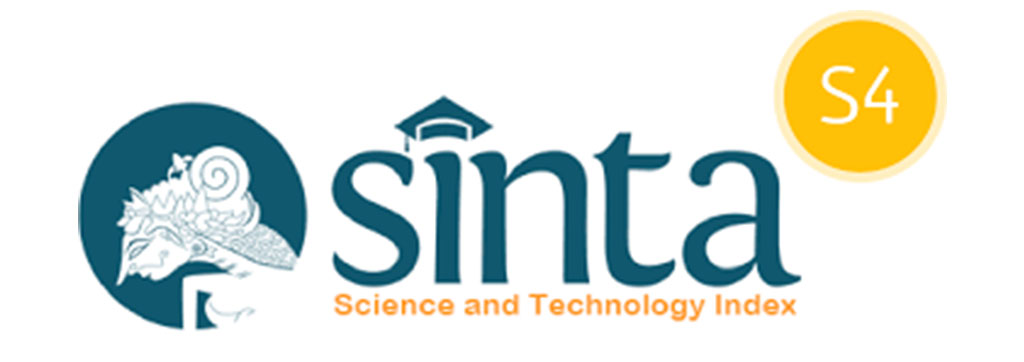Strengthening Job Satisfaction Through Improving Workplace Spirituality And Teacher Professional Competence
Abstract
This study explores the influence of workplace spirituality and teacher professional competence on job satisfaction among senior high school teachers in Malang City, Indonesia. In human behavior theory, the research examines how intrinsic values, professional motivation, and relational harmony within the school setting contribute to a teacher's satisfaction. Utilizing a quantitative associative causal approach, the study surveyed 176 respondents using validated instruments and analyzed the data using Partial Least Squares (PLS). The findings reveal that workplace spirituality characterized by meaningful work, sense of community, and value alignment significantly impacts job satisfaction, primarily through the sense of togetherness among teachers. Likewise, teacher professional competence, comprising motives, self-concept, knowledge, and skills, also positively affects job satisfaction, with knowledge as the most dominant contributor. Moreover, the study highlights the mediating role of organizational commitment in strengthening the relationship between workplace factors and job satisfaction. The results emphasize that enhancing workplace spirituality and professional competence can foster a more satisfying and supportive school environment. This research offers theoretical contributions to educational psychology and organizational behavior and provides practical implications for school leaders and policymakers seeking to improve teacher well-being and performance.
References
Cash KC, & Gray GR (2000). A Framework For Accommodating Religion And Spirituality In The Workplace. The Academy of Management Executive, Vol. 14, Issue. (3), pp. 124–133.
Chand, P. & Koul, H. (2012). Workplace Spirituality, Organizational Emotional Ownership, and Job Satisfaction as Moderators in Coping with Job Stress. International Conference on Humanities, Economics and Geography. Vol. 2, Issue 3.
Chandrarin Grahita (2017). Accounting Research Methods, Salemba Empat Publisher, Yogyakarta. ISBN 978-979-061-771-1
Cheetham, G. & Chivers, G. (2001). How Professionals Learn In Practice – An Investigation Of Informal Learning Amongst People Working In Professions, Journal of European Industrial Training, Vol. 25 No. 5, pp. 274–88.
Choerudin, A. (2014). Workplace Spirituality: A Strategy for Employee Retention and Job Satisfaction. Journal of Business and Management Research, Vol. 12, Issue. (2), pp. 35–45.
Darling-Hammond, L., Flook, L., Cook-Harvey, C.M., Barron, B., & Osher, D. (2020). Implications for Educational Practice of the Science of Learning and Development. Applied Developmental Science, Vol. 24, Issue. (2), pp. 97–140. doi:10.1080/10888691.2018.1537791.
Day, C. (2017), Competence-based education and teacher professional development, in Mulder, M. (Ed.) Competence-Based Vocational and Professional Education, Springer-Verlag, Bern, pp. 165-182.
Garg, N. (2017). Workplace Spirituality and Organizational Performance in Indian Context: Mediating Effect of Organizational Commitment, Work Motivation and Employee Engagement. South Asian Journal of Human Resources Management. Vol. 4, Issue. (2): pp. 191–211. doi:10.1177/2322093717736134.
Giacalone, R.A., & Jurkiewicz, C.L. (2010). The Science Of Workplace Spirituality. Handbook of Workplace Spirituality and Organizational Performance.
Hair, JF, Black, WC, Babin, BJ, & Anderson, RE (2010). Multivariate Data Analysis. (7th Edition). NJ: Prentice Hall.
Hung, CM, Oi, AK, Chee, PK, & Man, CL (2007). Defining the meaning of teacher success in Hong Kong. In Handbook of teacher education (pp. 415-432). Dordrecht: Springer Netherlands.
Jin, J. & Lee, E. (2019). The Mediating Effect Of Workplace Spirituality On The Relation Between Job Stress And Job Satisfaction Of Cancer Survivors Returning To Work. International Journal of Environmental Research and Public Health, Vol. 16, Issue. (19), pp. 3510.https://doi.org/10.3390/ijerph16193510
Kagan, J., Marc H. Bornstein, & Richard M. Lerner. (2019). Human Behavior. Archived 2019-07-02 at the Wayback Machine. Encyclopædia Britannica
Marques, J. (2020). The Increased Relevance of Workplace Spirituality in Times of Crisis. Journal of Organizational Change Management, Vol. 33, Issue. (7), pp. 1-9. doi:10.1108/JOCM-06-2020-0194.
Mitroff II, & Denton EA (1999). A Study Of Spirituality In The Workplace. MIT Sloan Management Review, Vol. 40, Issue. (4), pp. 83.
Nasina, M.D., & Doris, P. (2011). Workplace Spirituality and Employee Well-being: A Review of Literature. Asian Journal of Business Management, Vol. 3, Issue. (5), pp. 357–364.
Rathee, R., & Rajain, P. (2020). Workplace Spirituality: A Comparative Study of Various Models. Jindal Journal of Business Research, Vol. 9, Issue. (1), pp. 27–40.https://doi.org/10.1177/2278682120908554
Rego, A., & Pina e Cunha, M. (2020). Workplace Spirituality and Human Flourishing: Exploring How Spirituality Nourishes Employees' Lives. Journal of Management, Spirituality & Religion, Vol. 17, Issue. (1), pp. 6–26. doi:10.1080/14766086.2019.1691078.
Sanusi Anwar. (2011). Business Research Methods. Jakarta: PT. Salemba Empat.
Shaheen, A., Al-Hniti, M., Salameh, A., Alkaid-Albqoor, M., & Ahmad, M. (2020). Predictors Of Job Satisfaction Of Registered Nurses Providing Care For Older Adults. Journal of Nursing Management, Vol. 29, Issue. (2), pp. 250–257.https://doi.org/10.1111/jonm.13147
Spencer, L. M., & Spencer, S. M. (1993). Competence At Work: Models For Superior Performance. John Wiley & Sons, New York
Tacconi, G. & Messetti, G. (2018), L'istruzione e Formazione Professionale (Iefp) Come Risorsa Per La Crescita Personale E Culturale Degli Studenti, Orientamenti Pedagogici, Vol. 65 No. 4, pp. 675-689.
Tang, SYF, Lo, ESC, Yeh, F.-Y. & Cheng, MMH (2023), Early Career Teachers Thriving In The Everyday Challenges Of Teaching: Understanding The Relationship Between Professional Competence And Teacher Buoyancy, Journal of Professional Capital and Community, Vol. 8, Issue. 1, pp. 30-46.https://doi.org/10.1108/JPCC-05-2022-0029
Turner, J. (1999). Spirituality In The Workplace. CA Magazine, 132(10), 41–42.
Walt, F Van der. & Klerk, De JJ (2014), Workplace Spirituality And Job Satisfaction, International Review of Psychiatry (Abingdon, England), Vol. 26, Issue 3, pp. 379–389, doi: 10.3109/09540261.2014.908826.
Wuttke, E. & Seifried, J. (2017). Modeling and measurement of teacher competence: Old wine in new skins?, in Mulder, M. (Ed.) Competence-Based Vocational and Professional Education, Springer-Verlag, Bern, pp. 883–901
Copyright (c) 2025 Rosdiana Amini, Sunardi Sunardi, Bambang Supriadi

This work is licensed under a Creative Commons Attribution-ShareAlike 4.0 International License.


